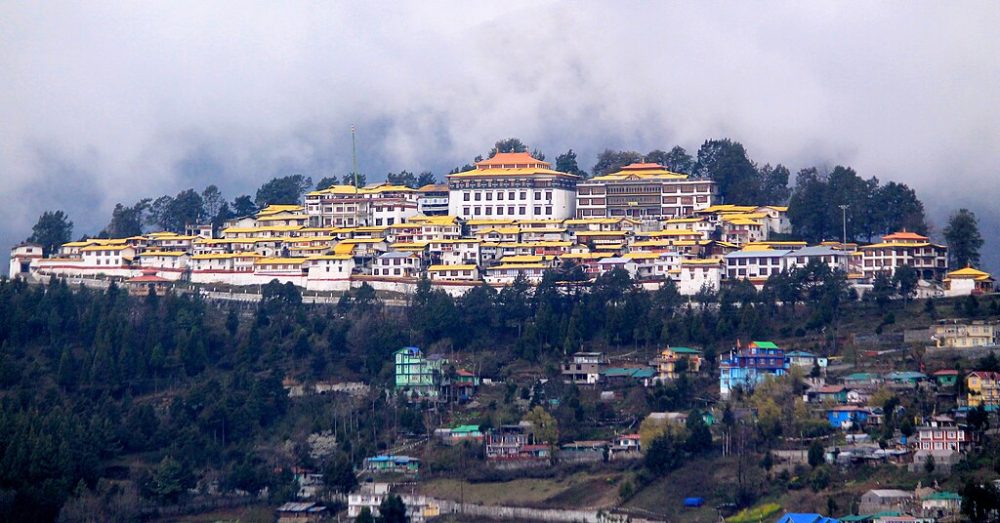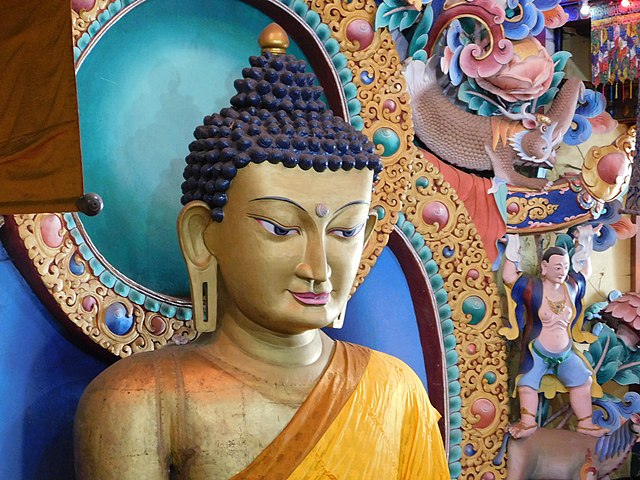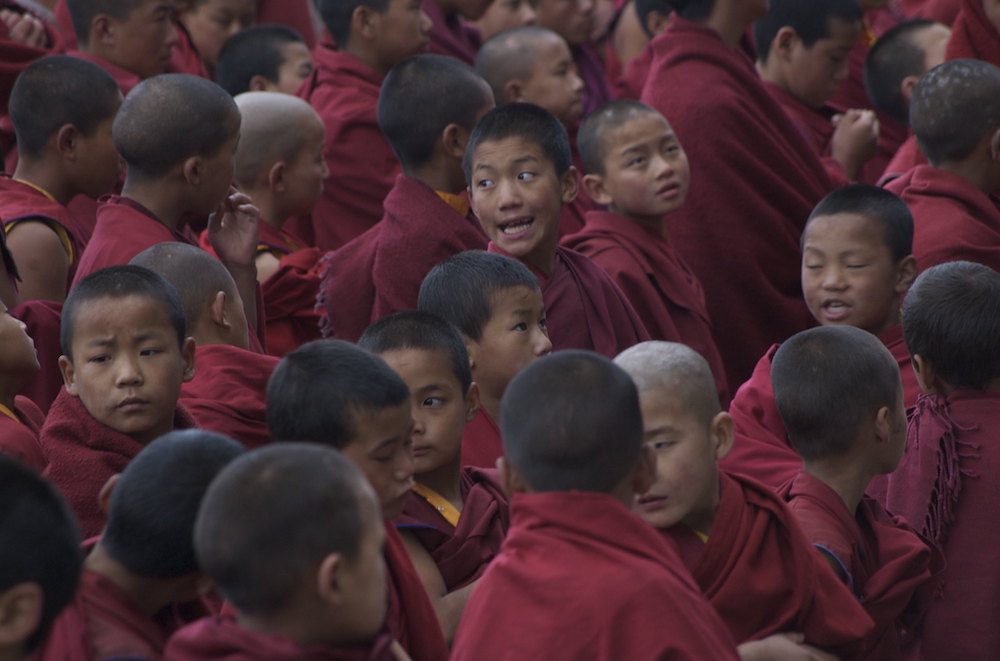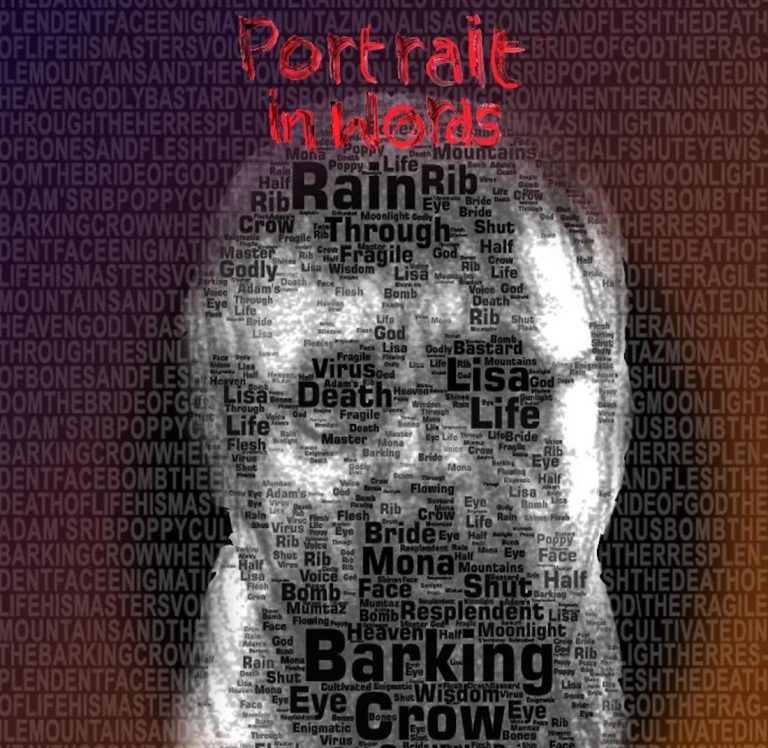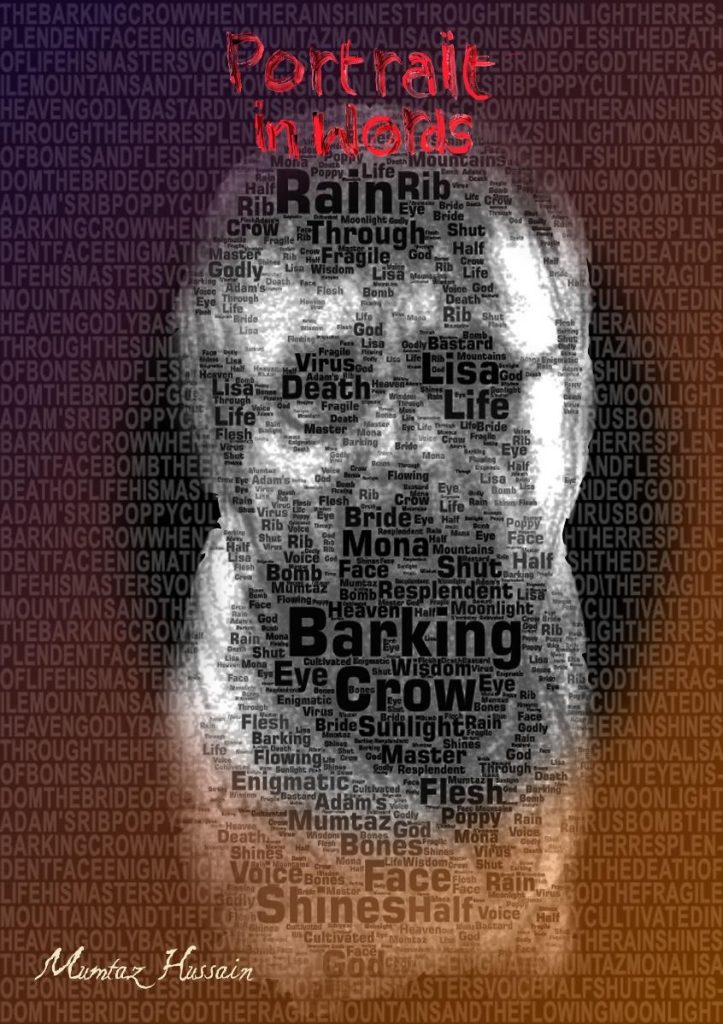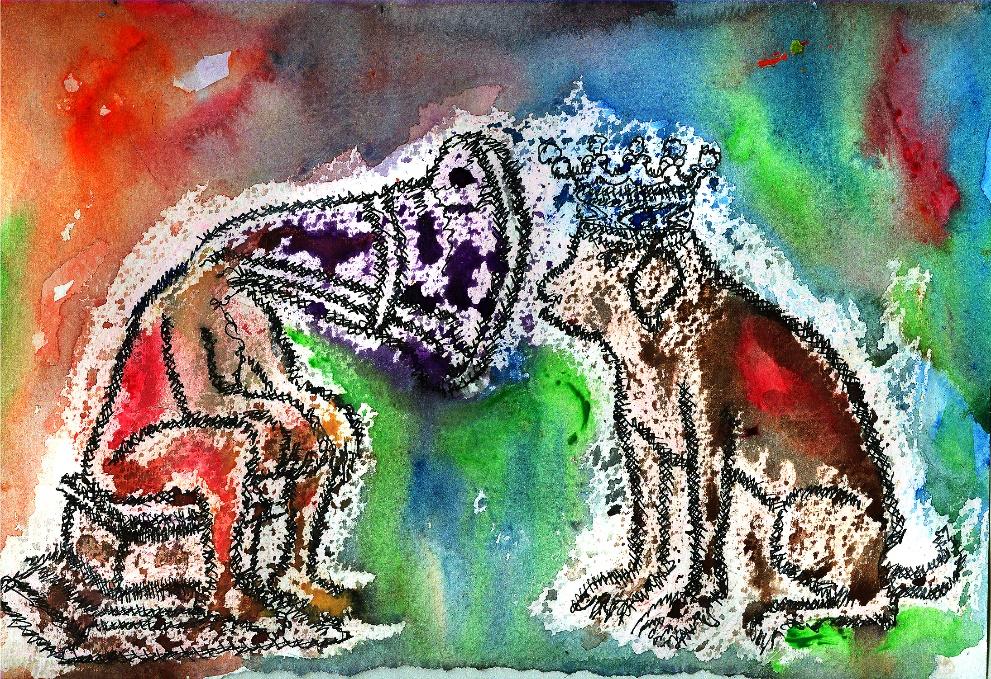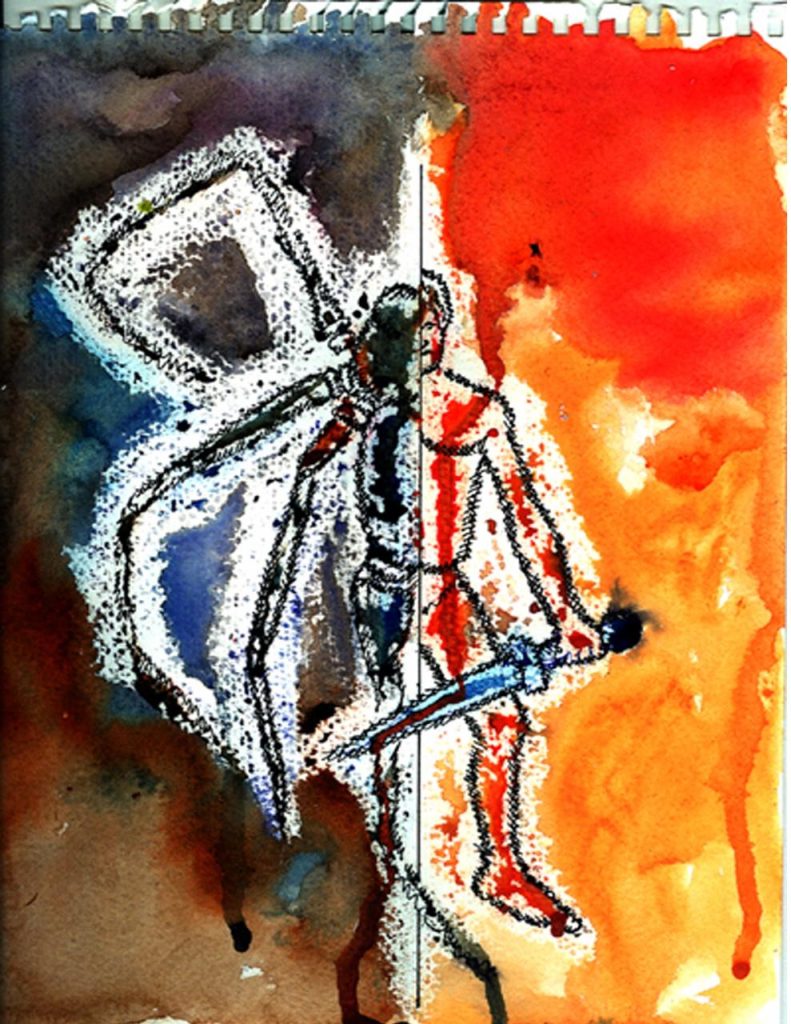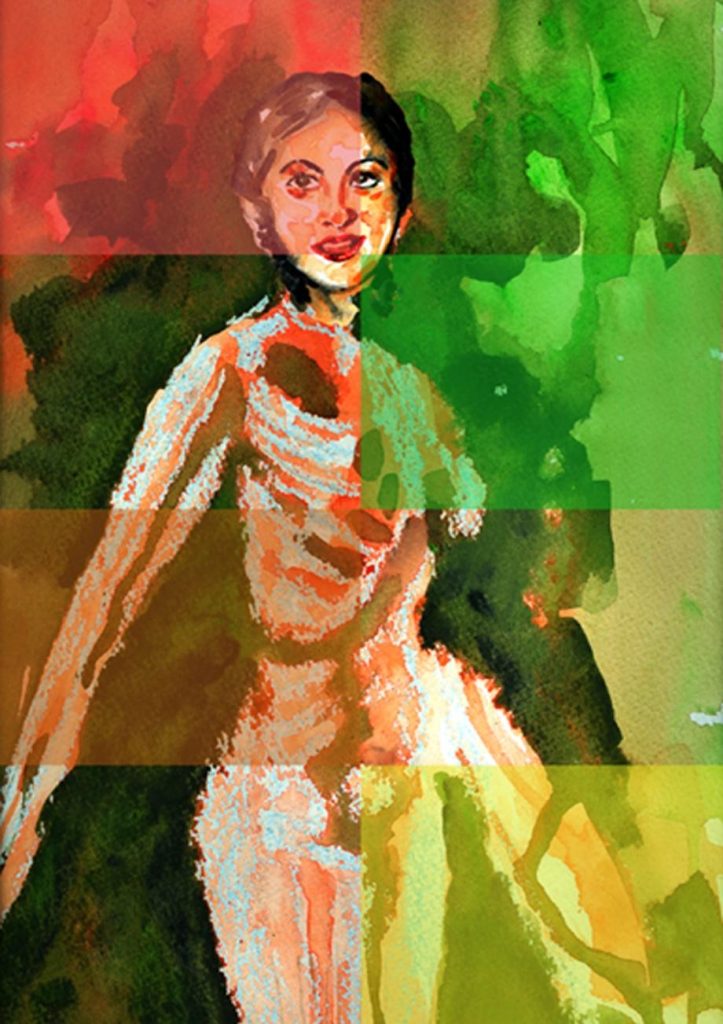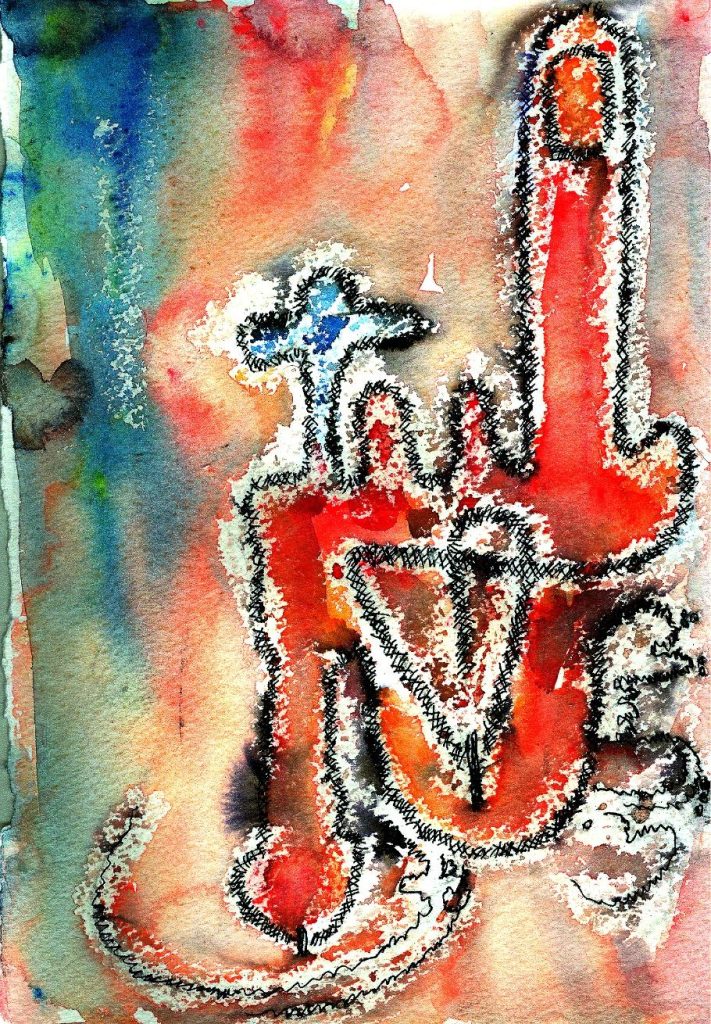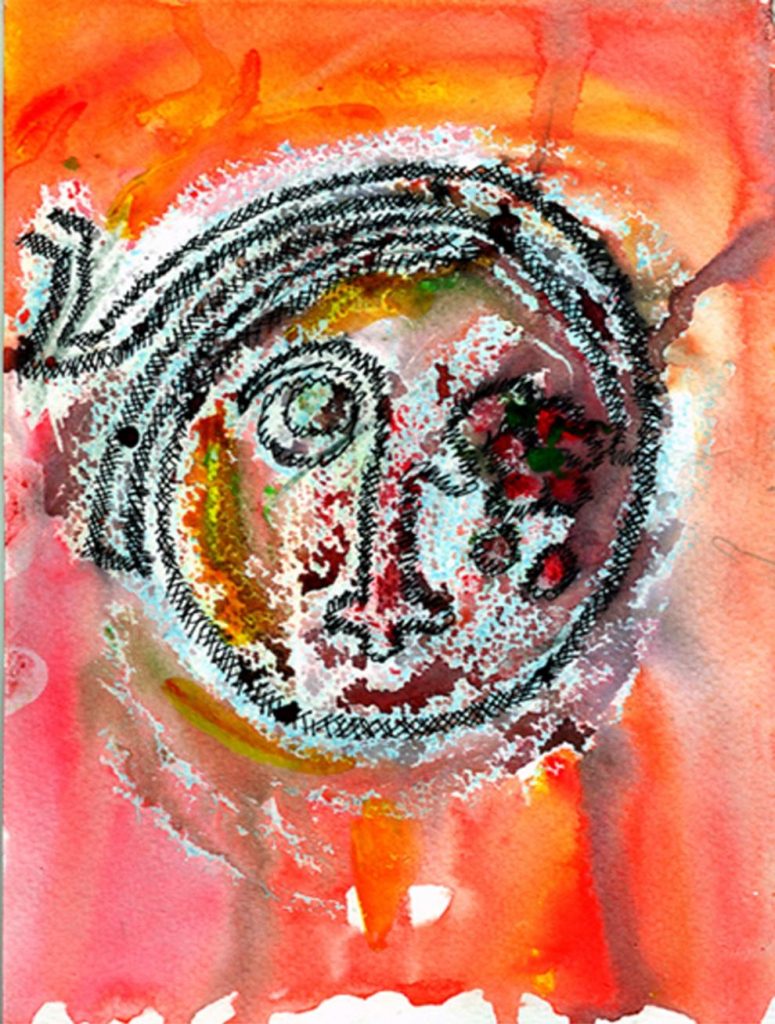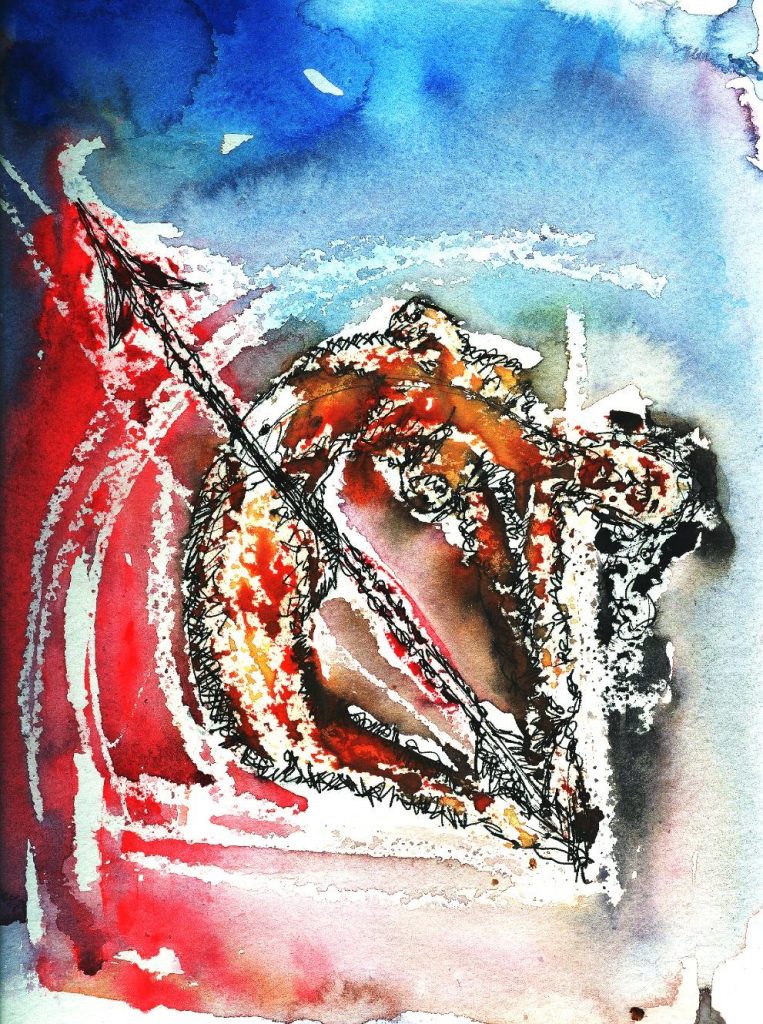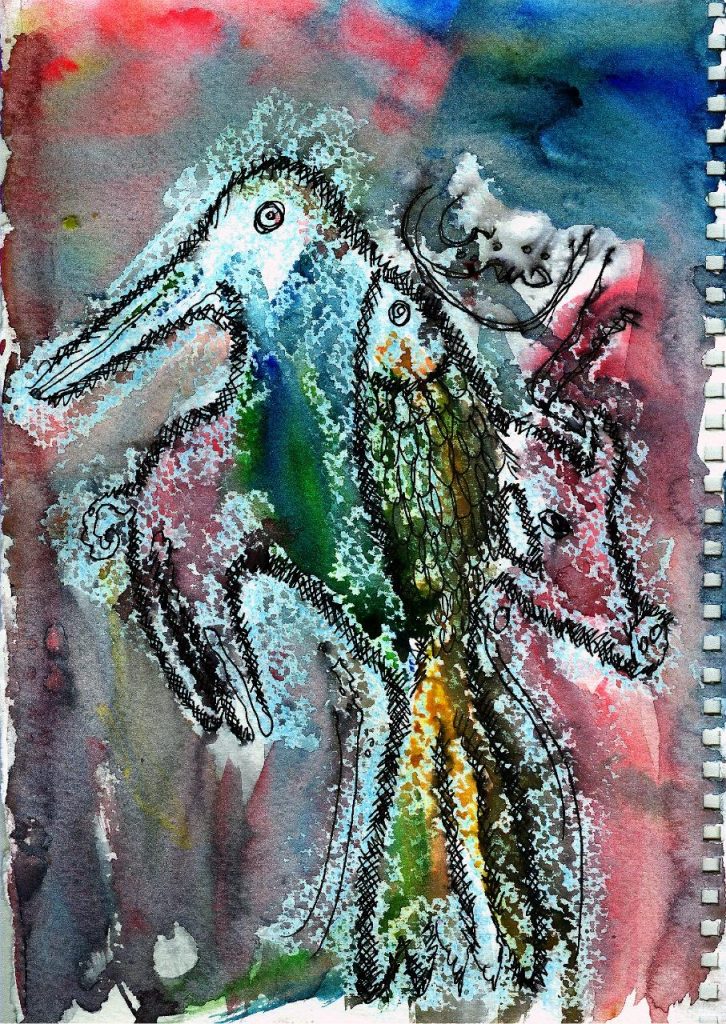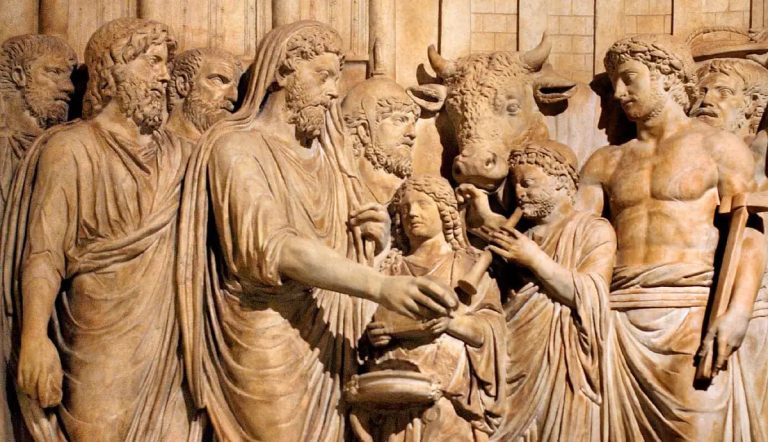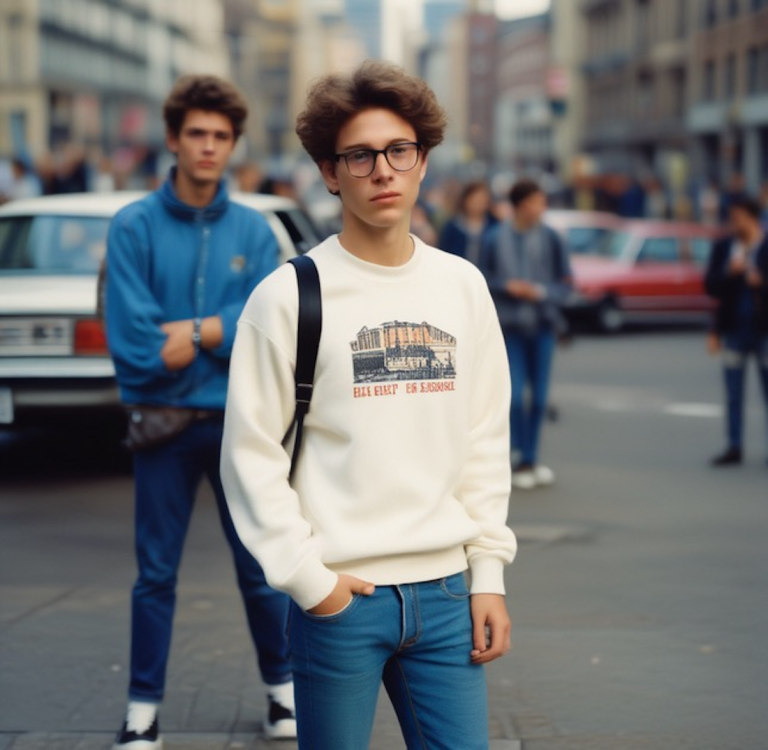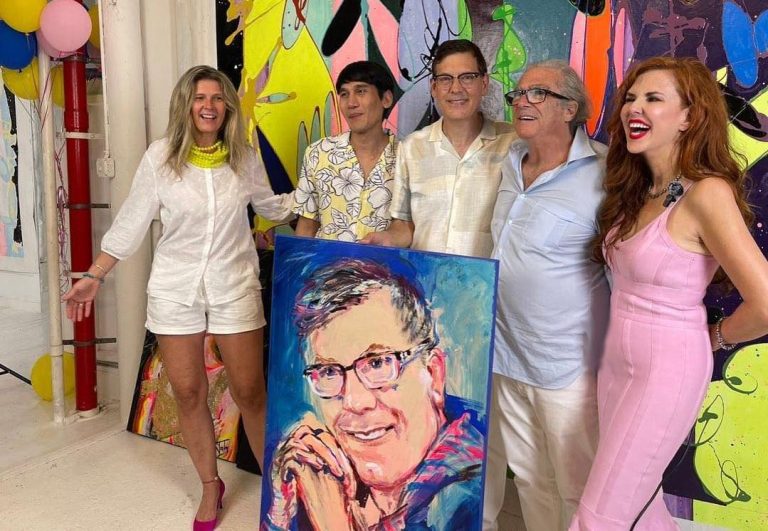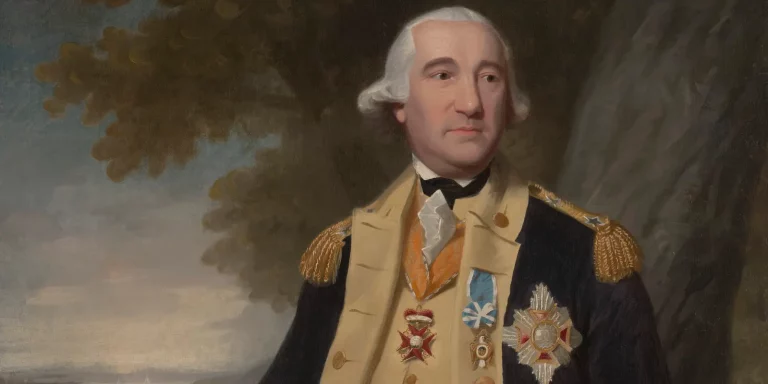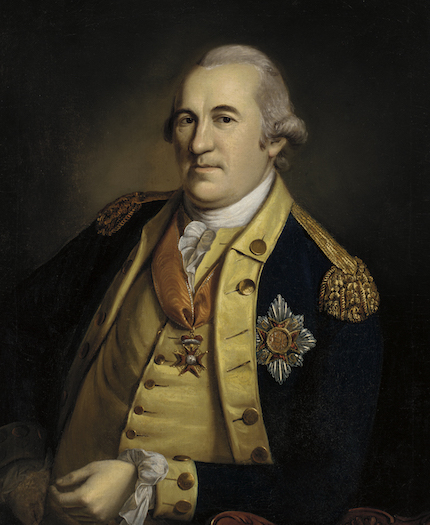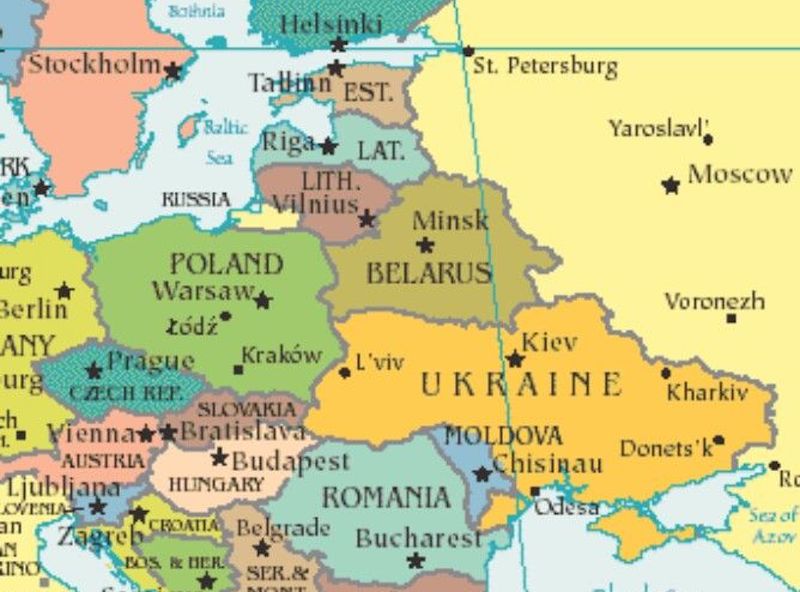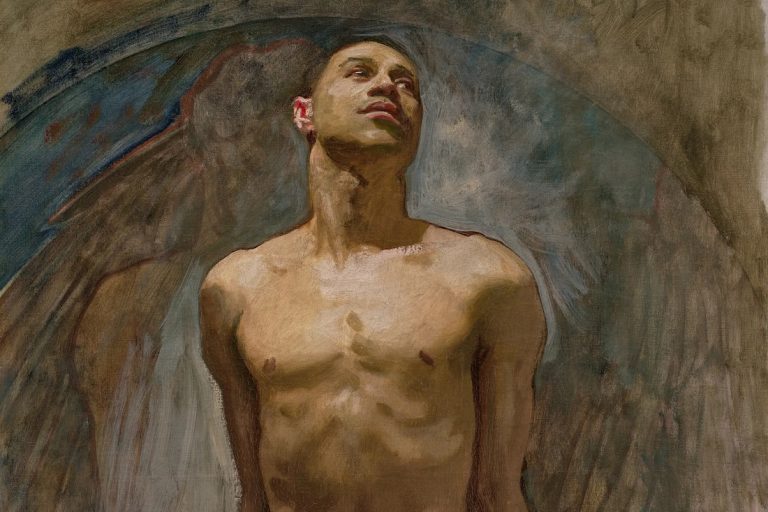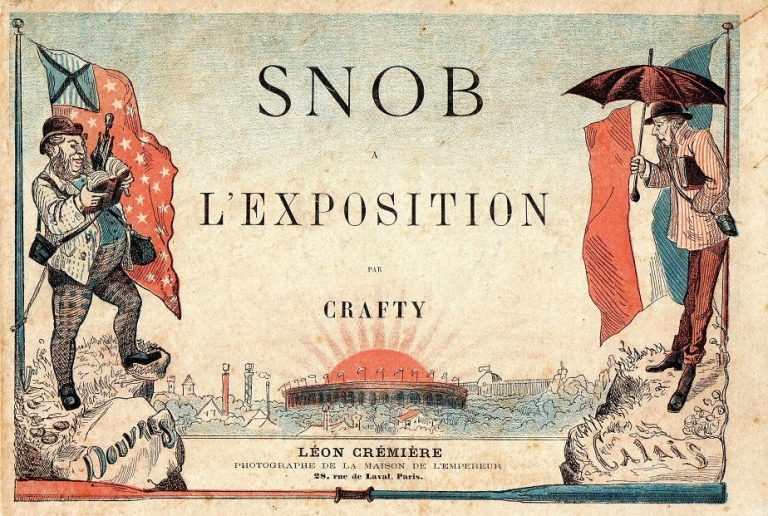Portrait in Words | Mumtaz Hussain
The Alphabet of the Image | Mumtaz Hussain’s short stories with paintings
“Would you please step aside? You’re standing right in front of the barrel.”
Perplexed, Mary looked around her in the lobby of the United Nations Headquarters in New York but could not find anyone. She heard the same voice again. Mary moved her eyes in the direction of the voice. She found herself in front of a sculpture of a knotted barrel revolver placed in the General Assembly Building lobby.
“I just cleared the security check. I’m not a troublemaker. I’m a peace-loving member of society.” A mischievous grin aroused in her mind. “How will this place provide peace to the world when a gun is pointed toward innocent citizens as soon as they enter the building,” she thought. “The gun is a matchbox ready to ignite fires in unlimited and uninhibited barrels of gunpowder.”
The gun replied, “You haven’t looked at my barrel carefully.”
“Yes, I did.” Mary gazed at the knotted barrel and ogled at the length of the barrel, and stopped at the front sight. This was a sculpture of a revolver created by Carl Fredrik Reutersward. Mary closed one eye and searched for the person whose finger was on its trigger. Mary could not find a finger or hand or anyone.
“Mr. Revolver, your barrel has a knot. How could you possibly protect us? If anyone fire a shot, he would blow his face and your hands up and mine.
“That’s for you to find out,” answered the revolver.
“Is this like elephants’ teeth? What others see is not what the elephants use!”
“You are clever.”
“No, I am not.” She apathetically rubbed her swollen belly. “I’m just a mother. All the clever ones are sitting in Wall Street’s skyscrapers playing with billions of dollars to control the world. They use ammunition and war to build economies and kill innocent children, wreaking havoc around the globe to ‘stabilize’ the global market.”
“You are right,” said the revolver, “That’s why they’ve laced me up at the forehead of the UN army as a symbol of power. Kindly go beyond the doors as the exhibition continues. The UN is a coliseum. It protects the rights of those who possess dynamite and nuclear ammunition.”
“All I can think of is my husband and twelve-year-old son, gasping for air on ventilators. Part of me died as I watched their souls leave their bodies before my eyes.
The gun turned its barrel towards the door, “The show is on, look! This is theatrics, also known as the exhibition hall building. Surprisingly, or quite obviously, it exploits developing nations, making them poorer and poorer.”
Mary’s smile reflected her joy and satisfaction. “Look! Whose heart appeals to my secrets?” Mary shook hands with the knotted revolver’s trigger guard. “You are my pal.”
The revolver boisterously laughed out loud. “You are my pregnant pal. My dear, all kinds of traditional warfare, with weapons of mass destruction, nuclear warheads, and the like, are irrelevant. Now the war is to spreading different viruses.”
“Now, this is my war.” Mary cuts the revolver off.
Unable to decipher whether to laugh or cry at her reply, the revolver laughed first, then began to weep.”
“Why did you laugh and then cry?” asked Mary.
“I laughed excitedly because I am in the state of highest honor. I stand with someone who will stand in front of evil like a wall. I cried because. A woman alone is powerless in front of these superpowers.” The revolver responded.
Mary’s eyes turned crimson. “A mother’s strength is second to none. I’ve lost my twelve-year-old son and my dear husband, and now,” she looked at her stomach, “I must protect him. I will take revenge for this insidious virus.”
The Revolver extended himself, “I am with you. Please shake hands with me.”
Mary glanced at the door. “Through these doors, nations gather to dehumanize humanity. Humans are considered mere robots and machines, the price for “freedom.” She pulled down her long shirt. “My son, now I am your sentinel.
As soon as she entered the doors, an old black American offered a mask to cover her nose and mouth. Mary refused. “Don’t you see I’m already wearing a mask to protect myself from the virus?”
The black man very subtly answered, “my dear daughter, you must wear this mask, as it will safeguard you specifically from the hate virus.”
“My skin is colorless. Hate is not permitted to come close to me,” Mary replied.
As Mary went further, she came across a Native American whose ancestors belonged to this land. He presented a red cloak to her.
“Please take this cloak as a gift. This one has no virus. All the cloaks infected with the virus had been used as a gesture of appreciation, thanksgiving when natives were killed by blankets infected by smallpox. Now, this cloak has no virus in it. Trust me; it is virus free.”
“Oh, the original owner of this land, I would like to get some rest and buy some food. Where should I go?” Asked Mary.
“Go upstairs,” he answered. He pointed upstairs. “Their restaurant is upstairs, where rich countries are introduced to new tastes and various meals and flavors. It’s where they sell hunger in the form of art. This building is a mall of hunger, insolvency, diseases, poverty, and war. Every department of this building is like a store that markets all these products in attractive packages.”
Mary entered the restaurant, famished. A beautiful black suit and tie lady stood at the reception, waiting for customers.
“How many people?” Asked the Lady Veto.
“Only me and the baby in my belly,” answered Mary.
“There’s no room for one mouth and two hands on a table. But, if you like, you can share a table with two other people.”
Mary, extremely hungry now, said, “That’s fine.”
The table was quite spacious, and she sat down after making room on the table. The other two people at the table looked exactly alike but were quarreling with each other. Facing each other, except for eating together, they engaged in a severe and fiery discussion. The person on the left side argued that the virus started in the valleys of Kashmir, while the person on the right argued it started in Baluchistan. Mary left the table and searched for another place to sit. The same thing was happening at another table. Two people were sitting squabbling face to face. One said the virus came from nowhere else but the Gaza Strip, while the other insisted it could be traced from Tel Aviv. She gave up on sitting at that table and moved forward. In the third table, people from Bosnia were altercating the same subject. Every table seemed like a battleground. The atmosphere robbed Mary of her appetite. She deliberated and, disappointed, decided not to eat and returned to the information desk.
The receptionist was reading the famous Russian novel MOTHER. She put the novel aside and fixed her eyes on Mary’s abdomen. “Please name your son Maxim Gorky.”
Mary corrected the wrinkles in her shirt. “I am an American. Why would I give my child a Russian name?”
“All your names are borrowed from somewhere. Asians name their kids Changes Khan, Europeans, Napoleon, or Alexander, from Alexander the Great, or names of Vikings. Nobody names their children after Shakespeare, Ghalib, or Tolstoy. Knowledge spreads the virus of love the girl’s words got under Mary’s skin. “I’m fighting the war of this pitiless virus.”
“I’m with you,” stated the receptionist. She picked up a vile from the desk drawer. “This will prevent you from getting the virus.
Mary tried to read the ingredients on the vile.
“It contains the Moon’s tears, the sweat off the Sun’s forehead, and a dead Mother Nature’s ash. Here. Take some drops.” Implied the receptionist.
“I bring those who created this virus to justice,” Mary said.
The receptionist snickered. “Please turn around, and look! Everyone is wearing a mask. How will you decipher who the culprit is? Which of the hands is stained with blood? The whole city is wearing masks and gloves. I will tell you what to do. Go straight. You will find stairs. Go up the stairs, and you will hit the Chamber of the International Court. An Attorney from the International Court is here from the Hague on an official visit.”
“What’s Hague?” Asked Mary.
“It’s a city in the Netherlands. This city holds the International Court of Justice. The Attorney’s teeth are jaundiced, just like his eyes.” Stated the receptionist.
“Now we have to go to another country to get justice?” Mary sarcastically asked.
“Yes. A mafia controls the righteousness of this country. So by popular demand of other countries, the International Court of Justice has to be outside this country.”
Mary bid adieu to the receptionist and followed the path as directed to find the staircase. She stood there and pondered how she would climb the staircase with her pregnant belly. Coincidentally she saw a creature with yellow teeth, like his eyes, coming down the stairs. Mary asked cautiously, “Are you the Human Rights Lawyer of the International Court of Justice?”
The person with jaundiced eyes answered, “Yes. I am. Do you represent any state?” He asked Mary.
“All the states of the World.” snapped Mary.
“Who are you quarreling with?” The Lawyer asked.
“All the states of the World.”
“So, you’re the prosecutor and the defendant? That’s interesting. What’s the dilemma?”
“Coronavirus. I will bring those responsible for the virus to the International Court so they may be punished. This virus is a nuisance to the world. One can neither breathe in nor out. I’ve witnessed my husband and child gasp for air like a fish taken out of water. “Mary claimed.
“Let’s go! We have to get permission from the Security Council’s advisory unit. Do you have time?” The Attorney asked.
“Do you have time?” Mary snarked. “Fighting this war is the purpose of my life!”
The person with jaundiced eyes reacted, “This is my job after you.”
The Advisory Unit of the Security Council listened to the arguments and pressed a red button and said. “This is a serious matter. There’s a threat of a world war. “Representatives from all countries gathered in the large building of the Security Council. Questions started being asked everywhere.
“What happened?” Asked someone.
“Was there use of force?” Asked another on the other side of the room.
“Is it genocide?” Asked a third.
“Were nuclear weapons used?” Questioned a fourth from across the hall.
“Chun, Chun, Chun!” A little sparrow screamed in the embrasure of the Security Council building.
“Oh! Has someone pressed the emergency button to save the environment from pollution?”
There was a stampede. All five permanent members of the United Nations appeared immediately. Everyone decided unanimously that the matter was grave. “The matter is serious.”
“The matter is very deep grave.”
“The matter must be presented to the International Court.”
A pregnant Mary stood up on her chair. “Women must be represented in this court.”
“The person with jaundiced eyes and teeth gestured for Mary to sit down.” “Hush! Besides fifteen male judges, three female judges represent the International Court.”
A one-week notice was given because the problem was severe. Usually, it’s not possible to start a session before two months. Then a date is announced.
After preparing for the case, Mary arrived in Hague. She was stunned to see the building of the International Court. It was like a palace made for a European king. Identical gardens are full of flowers on both sides. Through the enormous doors was a hall with a vast Greek-style stone sculpture of a woman installed at the end, and it had stained glass windows all around. Mary stopped in front of a vast painting ten times more significant than human size. A French painter transferred a woman’s image to the rough surface of the canvas. The woman was holding her baby. Mary began to imagine herself in the painting. The woman in the painting held a strong head on her rigid shoulders. Mary extended and widened her shoulders after breathing in. It caused her breasts to bulge out. She squeezed her fist while she passed the room. There was another room where the judges changed their uniforms for stability, called the Green Room. There was another room of that exact nature called the Red Room.
Tomorrow will be the court proceeding. Fifteen oversized chairs were placed in the courtroom. In the middle was the chair of the presiding judge. Facing these chairs was a space for numerous lawyers or representatives to present their arguments.
The court proceeding began after one o clock. A pregnant Mary was seated on the Plaintiff’s chair in the middle. Mary began to state her case. “The outbreak of Covid 19 caused economic suffering and a higher mortality rate than ever before. This has been seen and debated in the media, and the statistics provided to the public are insufficient. The unemployment rate is far higher than the death rate in every country. The actual deaths and loss of jobs are not accurately reported, as the numbers are far higher than we are told. There’s no such thing as an employment rate among the youth, which is the reason for the obliteration of the economy.”
A fellow from the opposite direction stood up and sarcastically interrupted, “Only strong shoulders can bear the brunt of a marvelous mind. Madam! Give God a break now. The sun is losing its energy, and the moon its exquisite beauty. Now only indestructible shoulders should control nature. The control of nature is now in our hands. “He jabbed, thrusting his fist in the air. “We have put the ancient God of centuries into retirement. The sun has been burning gasses for billions of years. Now it is running out of fuel.
Consequently, we have invented our sun. We will control its fuel.” He opened his fist. “The control of nature is now in the hands of science. We will control the sun, moon, clouds, rain, summer, and winter.” He triggered Google with a blink of an eye through a lens. “We have control over the Earth’s cyclical Solar Power system. He picked up the globe from the table and rotated it in his hand. Suddenly he looked at Mary and pointed at her globe-like belly. “How many children a woman gave birth to at one time till today? One, or under the best conditions, naturally, two, or utmost, 3. More than that is beyond her power. In her body, one cell is formed for birth every month, the egg of a woman. The female body cannot produce more. We do not need women anymore to reproduce. One hundred and seven children can be born with identical features and characteristics from that cell. We will govern society. We will produce a superhuman race. They will all have superior qualities, exquisitely and exclusively one color. No other skin color will exist. No black, brown, wheatish human faces. We will create the Alpha Plus society, a Marshal Race. He looked at the globe and laughed unabashedly. “From now…”
Mary cut him off and stood up in protest. “I can’t believe I’m listening to the greatest racist statement of this century! Your small number of a monotonous race can’t eliminate the beauty of diversity, a majestic garden consisting of all humans of every color.”
The man burst into laughter again. “How naïve are you? We invented the hydrogen bomb, which was much more dangerous than its predecessor, the atomic bomb. The Atom bomb annihilated only two cities in Japan, while the hydrogen bomb can eliminate Planet Earth in no time. We have the power to create a new planet. We will destroy old worn-out tools and planets to make room for new inventions, a newer planet. This planet is old now. We, humans, have a habit of keeping old things. We have to burn Rome down, so a new Rome can be built while Nero plays the flute to the tune of peace and happiness. “
Mary stood up in protest again. “I can no longer tolerate the ignorance of this fool. His ignorance, arrogance, and delusional sci-fi rambling must be removed. I need to submit a report containing the result of a case study. Bats cause this virus. Those who are using bats must be punished.”
A voice hailed from the corner. “Your honor, I have something to say to those who show arrogance towards my harbinger and must protect him.”
The judge said, “Introduce yourself. “
The man lugged his head out of the upright collar of his black coat. “I am the Romanian idol, tougher than humans, Prince Vlad the Impaler, also known as Dracula. My devotee is a friend of the human race in this world. It inhabits dark, gloomy caves. He eats insects. It’s the only mammal that flies, and its wings resemble the human hand. Imagine the skin between your fingers, thinner and stretched. Humans should learn a lesson from hanging upside down. This lugubrious animal is deprived of eyesight during the day and worships gloom; he is faultless, chaste, clean, impeccable, sinless, licit, fascinated, enthusiastic, and absorbed, lost in his thoughts. He does not bother you, humans; you use it for food, enjoying its soup. I don’t know why you humans made it a mascot for evil. His fictional elimination is being turned into reality.” Vlad points to the spokesperson of adventure fiction and continues, “This guy here thinks he can invent a superhuman. He claims we should eliminate our elderly and build a new civilization.” Dracula chuckled, “Learn a lesson from a bat. It adores the company of friends and flies. He sees in the dark. It sees things that are unperceivable to the human eye. It’s considered a symbol of death and new life in Mexican culture. It goes into underground caves in daylight and emerges every night as if it has been given new life.”
The so-called “Superhuman” flinched. “Have you seen his face, figure? It’s dreadful.”
In the meantime, Mary feels the pangs of childbirth. “Waves of pain are spreading in my stomach. I need to rest for a while.” Mary told the judges. Pregnant Mary was laid to rest in the Green room while the rest of the judges went to rest in the Red room.
The next day the session began where it had ended. Count Dracula again gave reasons in favor of bats. “If its physical appearance looks scary to you, then I present a person who is the most adored individual in your country; he’s part of your culture, a hero.” Count Dracula gave a signal, and in the courtroom, Batman, in his distinguished attire, landed on the courtroom dock, hanging from the ceiling fans. “Take a close look, Madam! The baby in your womb will wear his costume. Everything your baby owns, be it a book bag, pencils, or clothes, will bear his picture. This is the system of the society you come from, a system always making money off you by showing something and selling something else because they know how to cash the awful feeling of fear and the exquisite feeling of love. This is capitalism, which spreads fear and takes money out of your pockets at gunpoint. This bat has done nothing wrong. These Capitalists will first spread disease and then hoard money for treatment. Fear is the tool with which capitalists make money. “
The court session was in full swing when Mary began to have severe labor pains. The stomach began to hurt more and more, and a backache followed. Mary felt her water break. She began to feel shortness of breath, her stomach tightened, and she felt immense cramping, similar to, but more severe than, menstruation pain. She felt the baby position itself head down in her womb. She ran outside in a state of anxiety, imagining death nearing her. She forced herself out of the building and beckoned for a cab to the hospital. She stepped out of the building onto a step when a screaming voice startled her.
“Freeze! Don’t lift your foot from the ground.”
Mary froze. One man yelled, “Don’t lift your foot; for God’s sake, you are standing on a mine. As soon as you lift your foot, the world’s most dangerous bomb will explode. You are standing on a virus bomb.”
Mary’s hand landed involuntarily on her stomach. “Hi, my baby.” She said lovingly. “Don’t think of me. Save my baby. Mary carefully maneuvered her left hand under her left foot to keep the mine from going off; she screamed for help, for someone to save her child.
There was a stampede through the building. A man in a Batman costume came out of the Building. He knelt between Mary’s legs. Mary’s face was full of anguish and turned red. Powerful breaths came out of her mouth, and Batman delivered the baby from her womb. Mary’s screams drowned out the baby’s cries. “Take my baby far, far away. By God, take him far from the reach of this bomb. Don’t worry about me. I won’t let this bomb explode.” Mary lay there with her hand on the mine button. She lay there and lay there.
Portrait in Words | Mumtaz Hussain
The Alphabet of the Image |
Mumtaz Hussain’s short stories with paintings
See:
Portrait in Words is available on Amazon’s Audible, narrated by Scott LeCote (4 hrs and 36 mins). Order here.
